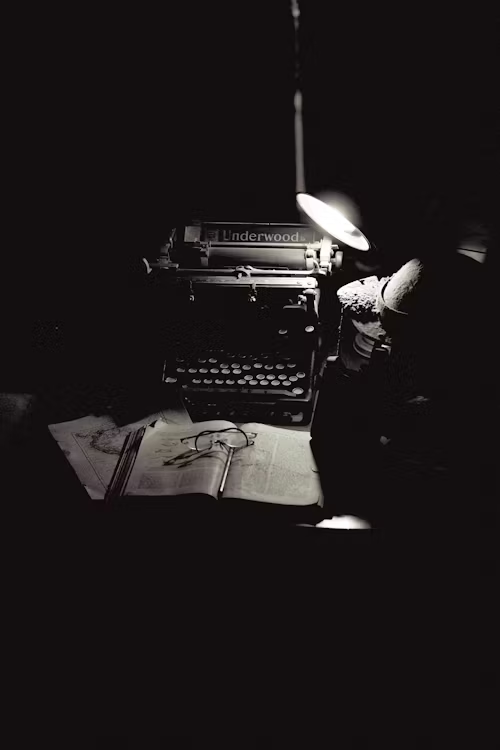The Role of an Editor in Your Author Journey
Writing a book is a bold act — one that takes vision, discipline, and a generous dose of vulnerability. Whether you’re weaving a sweeping novel, crafting a compelling memoir, or assembling a guide brimming with expertise, the act of putting words on a page is only the beginning. If you’re like most writers, you pour your heart into your manuscript and imagine how readers will connect with your story or ideas. But here’s a little secret: even the most talented authors don’t create perfection in their first draft. That’s why every writer, no matter their experience or genre, benefits immensely from working with an editor.
Think of an editor as your creative ally — a dedicated partner who helps transform your raw manuscript into a polished, powerful book. Whether you’re stepping into the world of self-publishing or navigating the traditional publishing maze, an editor’s insight, guidance, and expertise can be the difference between a good manuscript and a great book that resonates deeply with readers.
In this post, we’ll explore the many hats editors wear, how they support you at every stage of your project, and practical tips for building a fruitful, lasting author-editor relationship. Ready? Let’s dive in!
Why Editors Matter
You may have heard the famous phrase, “Write drunk, edit sober,” often (though mistakenly) linked to Hemingway. It’s a vivid way of illustrating something fundamental about writing and editing: the creative act of writing is wild, expansive, and free-flowing, while editing is where thoughtful refinement and focus come in. But editors aren’t just about “fixing mistakes” or “cleaning up grammar.” They are much more.
An editor is part strategist, part cheerleader, part critical thinker, and part storyteller. Their primary goal is to help your words do exactly what you want them to do. Maybe that means grabbing readers from the first page and holding their attention until the last sentence. Maybe it means clarifying complex ideas so your readers can understand and connect. Or maybe it means tightening pacing and character arcs so your narrative feels smooth and satisfying.
For authors choosing self-publishing, an editor acts as a vital quality checkpoint. Without the traditional publisher’s editing team behind you, your editor becomes your frontline defender of professionalism and readability — ensuring your book can stand tall among the millions of titles available today. For those seeking traditional publishing, editors help you craft a manuscript that agents and publishers can’t ignore — one polished enough to open doors to representation and contracts.
The Many Stages of Editing: What, When, and Why
Editing isn’t a one-and-done deal; it’s a layered process with different types of editing that serve unique purposes. Knowing the distinctions can help you plan your project and budget effectively, and avoid feeling overwhelmed by too many rounds of revisions.
1. Developmental Editing: The Big-Picture Tune-Up
Developmental editing (also called structural editing) focuses on the foundations of your manuscript. It zooms out to look at the entire structure, story arc, or argument flow. This is the editing that answers questions like:
- Does your story have a clear, engaging beginning, middle, and end?
- Are your characters evolving in ways that feel believable and meaningful?
- Is your nonfiction book organized logically to guide readers through your ideas?
- Are there any gaps, redundancies, or pacing issues that need addressing?
Developmental editors are experts in storytelling and narrative mechanics, or in the case of nonfiction, clarity and argumentation. They help you strengthen your manuscript’s overall shape before you get into the nitty-gritty details. This type of editing is especially valuable with early drafts — before you polish sentence by sentence, you want to be sure the skeleton of your book is sound.
2. Line Editing: Crafting the Music of Your Prose
Once the big picture is set, line editing focuses on the rhythm, flow, and style of your writing at the sentence and paragraph level. A line editor helps refine your voice, smooth transitions, and elevate your language choices. They pay attention to things like:
- Are your sentences clear and compelling?
- Do your metaphors and imagery enhance rather than distract?
- Is the tone consistent and appropriate for your audience?
- Are there places where redundancy or awkward phrasing slows the reader down?
Line editing is where your manuscript truly begins to sing. It’s less about fixing errors and more about enhancing the experience of reading your work. If you want your writing to sound alive, fresh, and uniquely yours, this is where that magic happens.
3. Copyediting: The Polishing Pass
After your story and style are in great shape, it’s time for copyediting — the meticulous work of catching grammar slips, punctuation errors, spelling inconsistencies, and formatting issues. A copyeditor ensures that:
- Your manuscript is free of typos and inconsistencies
- Grammar rules are applied correctly (or intentionally broken, for style!)
- Capitalization, hyphenation, and numbers follow standard or style-guide conventions
- Your manuscript looks professional and clean for readers and publishers alike
Copyediting is the final polish that helps your book feel professional and trustworthy. Even the best writers miss things; a fresh set of eagle eyes is invaluable here.
The Editor’s Role in Different Publishing Paths
Self-Publishing: Your Editor Is Your Quality Control Partner
In self-publishing, you wear many hats — author, marketer, project manager, and sometimes designer. But your editor is the crucial expert who ensures your manuscript stands up to professional scrutiny. Without a publishing house’s editorial team, your editor becomes your trusted quality gatekeeper.
Hiring a skilled book editor at the right stages is non-negotiable. Skipping this step can leave your book vulnerable to confusing plot holes, awkward sentences, or distracting errors — any of which can cost you readers and reviews. With a trusted editor, your book can compete head-to-head with traditionally published titles on platforms like Amazon or indie bookstores.
Traditional Publishing: Getting Your Manuscript Submission-Ready
If you’re aiming to snag a literary agent or land a publishing contract, your manuscript has to be polished and pitch-perfect. While a publisher will have editors to work with you after acquisition, your initial submission materials — query letters, proposals, and manuscripts — must shine on their own.
Editors can help you prepare by giving honest manuscript feedback that strengthens your story, clarifies your message, and improves your chances of getting noticed. Think of them as your backstage pass to the publishing world, helping you craft your best possible “first impression.”
Beyond the Red Pen: Emotional and Strategic Support
A good editor is so much more than a technician marking corrections on a page. They are a creative partner who truly gets what you’re trying to say — even when you don’t know how to say it yet. They ask thoughtful questions that open new possibilities. They spot potential where you might feel stuck. They encourage you to dive deeper or take a fresh approach.
Editing is an emotional rollercoaster, full of excitement, doubt, and sometimes frustration. A skilled editor understands this journey intimately. They balance tough love with encouragement, helping you navigate the complex terrain between your creative instincts and publishing realities.
They also keep one eye on the big picture and the other on the marketplace. They know what publishers, agents, and readers expect — so their guidance isn’t just about making your book “better,” but about making it fit for success in your chosen path.
How to Find the Right Editor for Your Book
Not every editor is a perfect match for every author or project. Finding the right fit can save you time, money, and frustration. Here are some things to keep in mind when searching:
Experience With Your Genre or Category
An editor familiar with your genre understands its conventions, reader expectations, and market standards. Whether you write romance, science fiction, memoir, or business nonfiction, a genre-savvy editor can provide precise, relevant feedback.
Clear Communication and a Collaborative Approach
Look for an editor who communicates clearly and kindly, who explains suggestions with context, and who encourages questions. A collaborative relationship builds trust and makes the process enjoyable.
Willingness to Offer a Sample Edit
Many editors offer sample edits on a few pages of your manuscript. This is a great way to see how they work and whether their style resonates with you.
Alignment With Your Goals
Make sure the editor understands your publishing goals — whether you’re self-publishing, submitting to agents, or seeking traditional deals — and tailors their feedback accordingly.
Ask About Their Background
Have they worked with traditionally published authors? Do they understand the roles of beta readers, timelines, and query letters? These details matter.
Do You Feel Respected and Understood?
Perhaps most importantly, trust your gut. Editing is a deeply personal process. You want someone who respects your voice and vision and helps you bring it to life.
What Working With an Editor Really Looks Like
Once you’ve hired an editor, expect an iterative, back-and-forth process. You’ll receive detailed notes — sometimes many! — and will revise accordingly. You’ll have questions, and your editor will respond thoughtfully.
Some feedback will inspire and energize you. Other comments may sting a little or challenge your assumptions. That’s all part of growth. Remember: the strongest author-editor relationships are built on trust, respect, and shared commitment to making your book the best it can be.
Be open to new ideas, curious about feedback, but also remember — your story, your voice, and your choices are paramount. The editor is your guide, not your boss.
When to Bring in an Editor
Timing your editor’s involvement can maximize their impact. Common milestones include:
- After a complete draft: Perfect for developmental editing to shape the manuscript’s core
- Before querying agents: Manuscript feedback or line editing helps ensure your submission shines
- Before publishing: Copyediting and proofreading put the final polish on your book
- Post-beta readers: Editors help you make sense of reader feedback and incorporate it strategically
Final Thoughts
Your writing deserves a champion — someone who sharpens your ideas, hones your message, and helps your book become the very best version of itself. An editor for authors is that champion, walking alongside you through every twist and turn of the creative process.
Whether you’re working on your first manuscript or your fifth, never underestimate the power of the right editor. They’re not here to rewrite your story. They’re here to help you tell it better — clearer, stronger, and with more impact.
Ready to find your creative ally and take the next step in your author journey? Let this be the start of a relationship filled with clarity, confidence, and creative collaboration. Your story is waiting to be told — with the right editor by your side, it can shine like never before.




